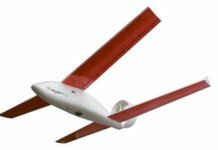U.S. Sens. John Thune, R-S.D., and Bill Nelson, D-Fla. – who respectively serve as the chairman and ranking member of the Senate committee on commerce, science and transportation – have proposed the Federal Aviation Administration (FAA) Reauthorization Act of 2016.
The FAA Reauthorization Act of 2016 reauthorizes the FAA and related programs through the end of fiscal year 2017 (Sept. 30, 2017). According to the lawmakers, the legislation updates the safety and privacy framework to further drone development, offers reforms to help the aerospace industry better compete in a global economy, improves aviation safety, and expands consumer protections for airline passengers.
Sens. Kelly Ayotte, R-N.H., and Maria Cantwell, D-Wash., the respective chair and ranking member of the aviation operations, safety and security subcommittee, are original co-sponsors on the legislation, which the full committee will formally consider at a meeting on March 16. The current FAA reauthorization expires at the end of the month.
For the unmanned aircraft systems industry, the senators say the bill addresses safety and privacy issues, boosts enforcement, and clarifies federal and local roles regarding UAS. At the same time, it creates new opportunities for testing and promoting innovative uses of the technology, subject to FAA approval.
Last month, the Aviation Innovation, Reform, and Reauthorization Act, another FAA reauthorization bill, was proposed by Rep. Bill Shuster, R-Pa., and Rep. Frank LoBiondo, R-N.J. According to a news post from the Aircraft Owners and Pilots Association, however, this bill has been stalled by a “highly controversial provision to privatize air traffic control.”
Brian Wynne, president and CEO of the Association for Unmanned Vehicle Systems International (AUVSI), says the policies of the FAA Reauthorization Act of 2016 “will accelerate the safe use of commercial UAS, as well as expand collaborative research and operational efforts.”
“First, the bill seeks to expedite the safe deployment of commercial UAS by creating a risk-based permitting process, which will allow the FAA to accommodate innovation, rather than require new rules each time a new technology emerges,” Wynne explains.
“Second, the bill addresses the patchwork of laws cropping up at the state and local level that attempt to regulate the airspace – which only the FAA has the authority to do. A clear regulatory framework for UAS at the federal level will eliminate the need for states and municipalities to attempt to fill the void with laws that they may not have the authority to enforce.
“Finally, the bill calls for the development of a research plan for a UAS traffic management system that will help integrate UAS into the existing national airspace infrastructure and ensure the continued safety of the airspace,” he says.
Lastly, Wynne says AUVSI “urge[s] the Senate to pass this bill quickly” so as not to risk “stunting a still-nascent industry.”
In addition, according to a section-by-section analysis of the bill, the FAA Reauthorization Act of 2016 would include the following provisions for UAS:
- Require the National Telecommunications and Information Administration to provide Congress by July 31 with a report on the multi-stakeholder process for UAS privacy best practices;
- Reauthorize the six FAA-designated UAS test sites;
- Require the FAA to work with an executive committee to work on a research plan for UAS integration;
- Reauthorize the FAA’s authority to give Section 333 exemptions for commercial operations, as well give the agency the authority to approve operations at night and beyond the visual line of sight;
- After completion of the small UAS rule, direct a further risk-based approach to UAS integration, including “recognizing the value of micro UAS” (4.4 lbs. and under);
- “Codify and amend the definition of ‘model aircraft’”;
- Develop an aeronautical knowledge and safety exam for all UAS users;
- Make underground UAS operations not subject to FAA rules;
- Establish an FAA senior advisor for UAS integration; and
- Establish a pilot project for UAS hazard mitigation for airports and critical infrastructure.
The Senate’s full analysis of the bill can be found here.








